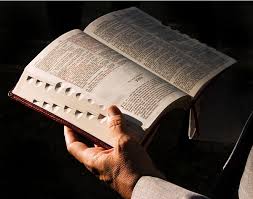Here are a few note to bear in mind wen reading A Day of Small Things.
Some articles are shown in full – this applies to letters, poems and some articles, especially those not by J N Darby. If no indication is shown then you may assume that the article is reproduced in full and unedited.
Light Editing
These articles have been subject to very minor editing. Darby’s writings are often difficult to follow, especially for a 21st century reader. There is archaic language, construction and spelling; words have been changed. There are some very long sentences; these have been broken up, sometimes with changed sequence to make it easier for the modern reader. Often he was writing for the benefit of learned academics or clerics, so additional references are given to ensure the item is intelligible. It is still safe, in the author’s opinion, to quote from this, though you would be well advised to check with the original, generally on the Stem Publishing website. We have kept the same titles and headings.
Summaries – Darby Simplified
Here, we have substantially rewritten articles. With God’s help we trust we have preserved the meaning (comments always welcome!), and not left out anything significant, and kept to the same dignified style as the original. However the length of the article will have been reduced by 60-70%, and the language simplified. We try to keep to a consistent person and tense; Darby changes frequently from ‘we’ to ‘you’ and from past to present. Sentences which are well written and clear may be reproduced unchanged.
The reader should use the utmost care in quoting from these summaries. I have no objection to your doing so, but please make it clear that you are quoting from an ADOSS summary. NEVER make it look as if you are quoting from the original.
It is for that reason that I change the tittle of a summary. For example JND’s ‘The Faith once delivered to the Saints’ is rendered ‘Knowing where we are, and what God wants us to do, in the Confused State of Christendom’.
May you be blessed in reading ADOSS. Whatever happens, keep near the Lord
Sosthenes
May 2014



